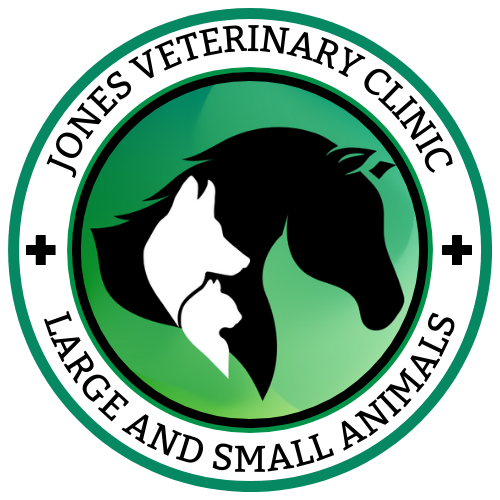New Year, New Pet Care Goals: Setting Up Your Pet’s Health Plan for 2025
As we enter 2025, the new year is the perfect opportunity to reflect on our resolutions—not just for ourselves, but for our pets as well. Whether you’ve welcomed a new furry friend into your home or have a long-time companion, it’s a great time to establish a health plan that supports their well-being. From routine check-ups to exercise, diet, and mental stimulation, a comprehensive approach to your pet’s health can help ensure a happy and healthy year ahead.
One of the first steps in your pet’s health plan should be scheduling a routine check-up with your veterinarian. Even if your pet seems perfectly healthy, regular veterinary visits are crucial for early detection of any health issues. A thorough check-up allows your vet to assess your pet’s overall health, ensure their vaccinations are up-to-date, and address any changes in behavior or health. It’s also the perfect time to discuss concerns, such as weight gain, decreased activity, or any new habits your pet has developed. Starting the year with a vet visit ensures that potential issues are addressed early, helping your pet stay healthy and happy in 2025.
For those who have welcomed a new puppy or kitten into their home this holiday season, it’s especially important to schedule a wellness check with your veterinarian as soon as possible. New pets, particularly young ones, need their initial check-up and a series of vaccinations to ensure they are protected against serious diseases. Puppies and kittens are particularly vulnerable to illnesses, and vaccines are essential for preventing diseases that could have lasting health impacts. Some of the key vaccines for puppies and kittens include:
- Distemper: A highly contagious viral disease affecting the respiratory, gastrointestinal, and nervous systems.
- Parvovirus: A potentially deadly virus that attacks a puppy’s gastrointestinal tract, leading to severe dehydration and sometimes death.
- Rabies: A fatal viral disease that affects the brain and nervous system and can be transmitted to humans.
- Adenovirus: Causes infectious hepatitis, leading to liver disease in dogs.
- Leptospirosis: A bacterial infection that can cause kidney and liver damage.
- Feline Distemper (Panleukopenia): A highly contagious viral disease in kittens that can cause severe vomiting, diarrhea, and death.
- Feline Leukemia (FeLV): A viral infection that affects a cat’s immune system and can lead to cancer.
- Feline Calicivirus and Herpesvirus: Both are common causes of respiratory issues in kittens.
Having these vaccines administered early in life helps protect your new pet from serious health risks and provides peace of mind for their future. Discuss with your veterinarian the appropriate vaccination schedule for your puppy or kitten based on their age and health status.
As you continue to focus on your pet’s health, take time to evaluate their weight and exercise routine. After the holiday season, many pets may have put on a few extra pounds, and maintaining a healthy weight is crucial for preventing health problems such as joint pain, diabetes, and heart disease. Work with your vet to determine a diet and exercise plan that’s right for your pet. Regular physical activity isn’t just for weight management; it’s also important for their mental well-being. Whether it’s daily walks, playtime, or interactive toys, ensuring your pet stays active will help keep them happy and healthy in the new year.
Exercise and Weight Management Tips:
- Set a healthy weight goal in collaboration with your veterinarian.
- Increase exercise gradually to prevent injury, especially if your pet has been less active.
- Offer healthy treats and avoid table scraps to keep your pet’s calorie intake in check.
- Try interactive toys and games to encourage movement, even indoors.
Along with exercise, it’s important to review your pet’s diet and nutrition. Just like humans, pets have specific dietary needs that change as they age. If you’ve noticed your pet seems less energetic, has digestive issues, or has had changes in their coat or skin, it might be time to reassess their food. Consult your veterinarian to ensure your pet is getting a balanced, high-quality diet suited to their age, breed, and activity level. Your vet can recommend food that helps maintain a healthy weight and addresses any specific concerns, like food allergies or sensitivities.
Diet and Nutrition Tips:
- Ensure your pet’s food is appropriate for their age and size (puppies and kittens need different formulations from adults).
- Look for high-quality protein sources in their food to support muscle mass.
- Introduce new foods gradually to avoid digestive upset.
- Consider adding Omega-3 fatty acids to help with skin and coat health.
Preventative care is another essential part of your pet’s health plan. Year-round protection against parasites like fleas, ticks, and heartworms is crucial for keeping your pet healthy. Discuss with your vet the best parasite prevention plan for your pet, as different climates and lifestyles may require different treatments. Additionally, make sure your pet is up-to-date on their vaccinations, and consider microchipping if they haven’t been already. Microchips are a permanent and reliable form of identification that can significantly increase the chances of being reunited with your pet if they go missing.
Parasite Prevention Tips:
- Discuss a year-round flea, tick, and heartworm prevention plan with your vet.
- Ensure your pet is regularly treated based on the local climate and your pet’s habits.
- Use flea and tick preventatives even during the winter months in mild climates.
- Ensure any outdoor pets are treated for parasites more frequently.
Finally, as we focus on exercise and physical health, it’s important not to overlook mental stimulation and enrichment. A well-exercised and mentally stimulated pet is a happy and balanced one. In addition to regular walks or play sessions, consider providing interactive toys, puzzle feeders, or training activities that challenge your pet’s mind. Mental enrichment helps reduce boredom and can prevent unwanted behaviors like destructive chewing or excessive barking. It’s especially important for pets who may be confined indoors for much of the winter months.
Mental Stimulation Tips:
- Provide interactive toys or treat-dispensing puzzles to keep their mind engaged.
- Incorporate basic training sessions to keep them mentally sharp and reinforce good behavior.
- Consider rotating toys to keep things fresh and exciting.
- For cats, set up climbing structures or scratching posts to encourage natural behaviors.
The new year provides a fresh start to ensure your pet has the best possible care. From scheduling wellness checks and vaccinations for new pets to focusing on weight management and mental enrichment, a little planning goes a long way in supporting your pet’s health. By setting these goals now, you’re giving your pet the best possible start to 2025. Here’s to a year filled with good health, happiness, and cherished moments with your furry friend!

